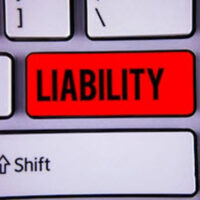If You Are Harmed by A Crime On Business or Public Property, Can You Recover Damages?

In late September, the Florida Supreme Court ruled that victims of the Parkland shooting can only recover $300,000 from the Broward County School Board because, even though the school rendered inadequate security (which ultimately lead to the injuries in the shooting), there is a sharp limit on how much government agencies can be forced to pay due to state sovereign immunity laws.
The case highlights the issue of premises liability, or liability to landowners for injuries that occur on their property due to conditions of the property or other circumstances (such as inadequate security). However, each year, a number of these injuries occur on non-government-owned property, which means that this $300,000 limit on what victims can recover does not apply. Below, we discuss some of the common questions that come up in these types of lawsuits:
Is The Plaintiff an Invitee, Invited/Uninvited Licensee, Or Trespasser?
The first question involves determining whether the injured plaintiff was an invitee (business or public), invited or uninvited licensee, or trespasser, with invitees and invited licensees receiving the most protection and uninvited licensees and trespassers the least. This determines the applicable standard of care owed to the plaintiff. In a nutshell, if a business expressly invites or reasonably implies an invitation, an individual who comes onto that property is an invitee (for example, a customer or student). If the individual is there for their own convenience without an express or implied invitation, they are often considered to be an uninvited licensee. A social guest is an example of an invited licensee, while someone who goes into a store to get change for themselves, for example, would likely be considered to be an uninvited licensee.
Duties Owed by Owner
When it comes to duties owed to invitees and invited licensees, owners must maintain the premises in a “reasonably safe condition” based on the purposes for which they are made available. This includes warning of any dangers which are “known or should be known” to the owner.
Landlords have been held to have far less of a duty to licensees: they must simply not harm or expose them to danger recklessly, “willfully or wantonly.” Similarly, an owner’s duty towards a trespasser is to simply not inflict “willful or wanton injury” onto them.
Foreseeability: Where Florida Courts Disagree
While criminal acts are by nature typically unforeseeable, if they are reasonably foreseeable given the particular circumstances of what happened in a case (for example, a store that has been violently robbed many times), a duty may be found to exist between the business owner and an invitee in terms of protecting that invitee from foreseeable criminal attacks by third parties. They also depend upon whether the business owner took ordinary or reasonable care to prevent criminal conduct. Florida law dictates that convenience businesses, for example, must be equipped with certain security devices and meet specific standards when it comes to crime prevention.
However, plaintiffs who are assaulted or otherwise injured due to third party crimes on business property can sometimes turn the existence of these security devices around to argue that a business owner had the security devices because they knew that crime was likely to occur on the premises, and, had they done more, the plaintiff would not have been harmed. However, this may not be enough to demonstrate foreseeability; a stronger case would be made, for example, if a notorious crime occurred right next door, or previously at that specific property, and the owner hadn’t taken any reasonable precautions to protect customers.
That being said, Florida courts disagree as to what makes a crime foreseeable: Florida’s Fourth District Court of Appeal recently reversed a trial court’s summary judgment and found that genuine issues of material fact existed regarding whether plaintiff’s subsequent attacks were foreseeable and whether the defendant business had a duty to prevent them, which it failed to do. At the same time, the Third District Court of Appeal has put forth a rigorous requirement concerning the geographical and temporal proximity of prior crimes, as well as their similarities to the current crime at hand, in order for a plaintiff to prove foreseeability.
Contact Us If You Have Any Questions or Concerns About Being Attacked On Business, Public, Or Social Property in Florida
If you have any questions or concerns about injuries or other harm incurred on business or other property, contact Tampa inadequate security lawyer Mark H. Wright today to find out how we can help you figure out if you have a viable claim for recovery.
Resources:
4dca.org/content/download/593130/opinion/183699_1709_01152020_08584242_i.pdf
miami.cbslocal.com/2020/09/25/florida-supreme-court-parkland-shooting-families/
